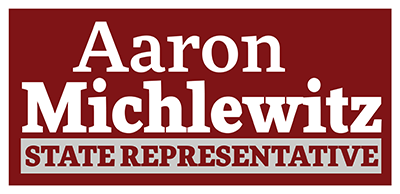

After two days of deliberations, the House passed a roughly $46 billion budget Thursday that includes expanded access to reproductive health care in Massachusetts, stays away from new broad-based taxes, and draws $1.5 billion from the state’s “rainy day” fund.
Operating on a condensed timeline, the House passed a budget 143-14 that largely stayed true to the proposal released by House Ways and Means earlier this month.
Over the course of roughly 25 hours in the chamber, the House adopted four mega-amendments that addressed topics from education and local aid to labor and economic development.
Two closely watched amendments did not come up for public consideration and were instead swept away by the amendment-bundling process after private talks. Those were a Rep. Mike Connolly amendment extending an eviction and foreclosure moratorium through at least Jan. 1, 2021 (777) and a Rep. Mindy Domb proposal requiring the governor to fill a U.S. Senate vacancy with an appointee of the same political party as the person leaving office (695).
Get up to speed on the local coronavirus outbreak and other news Boston is talking about. Add our daily newsletter to your morning routine. Sign up now.
The only debate of the day came when the House adopted a Rep. Claire Cronin amendment to allow abortions after 24 weeks in the case of lethal fetal anomalies and lower the age from 18 to 16 that a minor can choose to have an abortion without parental or judicial consent.
The Rep. Claire Cronin amendment, adopted on a 108-49 vote, also directs the Department of Public Health to collect data on abortions performed by physicians, physician assistants, certified nurse practitioners, or certified nurse-midwives. The amendment sparked contentious debate for about 90 minutes before the vote.
“It was only hours after the death of Ruth Bader Ginsburg, that [Speaker Robert DeLeo] called me, and on a Friday night no less, to make clear that the House would take action to ensure that a woman’s right to access safe reproductive care remained intact,” Cronin said.
Standing in opposition to the measure, which has been percolating for months, Minority Leader Brad Jones again took issue with Speaker Robert DeLeo bringing a policy proposal forward after saying the budget was no place for such amendments.
“It raises the question whether agreements and understandings really mean anything. I don’t deny the underlying issue is important, critically important to members and to the public. But to be being done as part of the budget process is wrong,” said the North Reading Republican, who voted against the amendment. “I don’t care what side of the issue you’re on, being done as part of the budget process in a lame duck session, under the cover of darkness, in the midst of a pandemic is wrong.”
Cronin made clear during her floor speech that the amendment was “not the ROE Act,” a piece of legislation that has sat before her committee since the start of 2019 and has drawn significant support and opposition.
The Easton Democrat said the death of U.S. Supreme Court Justice Ruth Bader Ginsburg and appointment of Justice Amy Coney Barrett to the Supreme Court renewed a push “for legislative action to ensure that women have access to safe and legal reproductive health care in Massachusetts.”
The amendment still requires a young woman under the age of 16 to obtain parental consent or go through a judicial bypass to obtain an abortion. Cronin said the amendment also allows judicial proceedings to take place via teleconference or in-person and removes reference to existing criminal penalties.
“We recognize for some women, transportation to or access to a courthouse is a significant barrier,” Cronin said. “The embarrassment of going into a local courthouse and being seen or recognized by friends or neighbors can be traumatic.”
Gov. Charlie Baker has said he wants the final bill on his desk by Thanksgiving, now two weeks away.
“We know we’re on the clock, because of the idea of FY22,” Ways and Means Chair Aaron Michlewitz said after session. “With the FY22 process needing to begin pretty soon. So certainly, we want to make sure that we do it as quickly as possible. But I don’t want to put a definitive, arbitrary deadline on that. But I’m confident we’re going to be able to work with the Senate to get this done it.”
The amendment process added around $27.9 million to the bill’s bottom line.
The Senate starts its deliberations Nov. 17 on its $46 billion Senate Ways and Means budget plan. The House is back in an informal session on Monday at 11 a.m.
